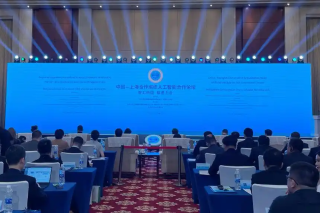Relief policies for SMEs amid COVID-19 welcomed in China
In the strengthened relief policy, the re-lending quota for small firms will be increased by another 300 billion yuan($46.44 billion) this year. Local banks will be supported in issuing loans to micro and small enterprises and self-employed individuals.
Policies of loan interest discounts and incentives for industries and firms seriously affected by COVID-19 will be fine-tuned. Banks will be encouraged to grant more inclusive credit-based loans to micro and small enterprises.
A risk compensation mechanism for the national financing guaranty fund will be put in place to support guarantee institutions in providing guarantees to micro and small enterprises that lack collateral or credit records.
Feng Tianjian, general manager of the Tianjin Xintai Technology Development Co., Ltd., said that his company has obtained 1.5 million yuan loans with low interest in 2020 to tackle short-term cash flow difficulties.
"With the government's support and strict pandemic control, I'm confident that we will see a rapid growth and the company's sales and employees' salary doubled on the existing basis," Feng said.
"The new policy has enhanced capital support from multiple channels. It improves the availability of financial resources for micro, small and medium-sized enterprises by establishing the risk compensation mechanism," said Liang Feng, an associate professor of business at Nankai University.
In the new policy, greater support will be provided for starting businesses and pursuing innovations.
"We need such new support. As a new high-tech company on energy control, it was hard for us to obtain bank loans. But now, we see the government's determination in supporting start-ups and helping us improve risk resistance," said Liu Hao, president of the Kangaroo (Tianjin) Carbon Neutral Research and Development Co., Ltd.
China said earlier this month that it will set up a stock exchange in Beijing and build it into a major base for innovative small and medium-sized firms.
"The Beijing Stock Exchange aims to serve innovative SMEs. The goal is to provide them with more convenient and inclusive financing and service platform and cultivate a batch of key innovative SMEs. The new policy will bring better development paths for SMEs after getting out of the current difficulties," Liang said.
"Where there are enterprises, there are jobs. The new policy will reduce the burdens of the micro, small and medium-sized companies and enhance job opportunities," said Li Jianming, vice president of the China Enterprise Confederation.
"Meanwhile, the enterprises also need to make good use of the new policy, improve their management and expand the markets to create more competitive services and products, and explore more growth potential," Li said.

Copyright ©
Tianjin Municipal Government. All rights reserved. Presented by China Daily.
京ICP备13028878号-35



